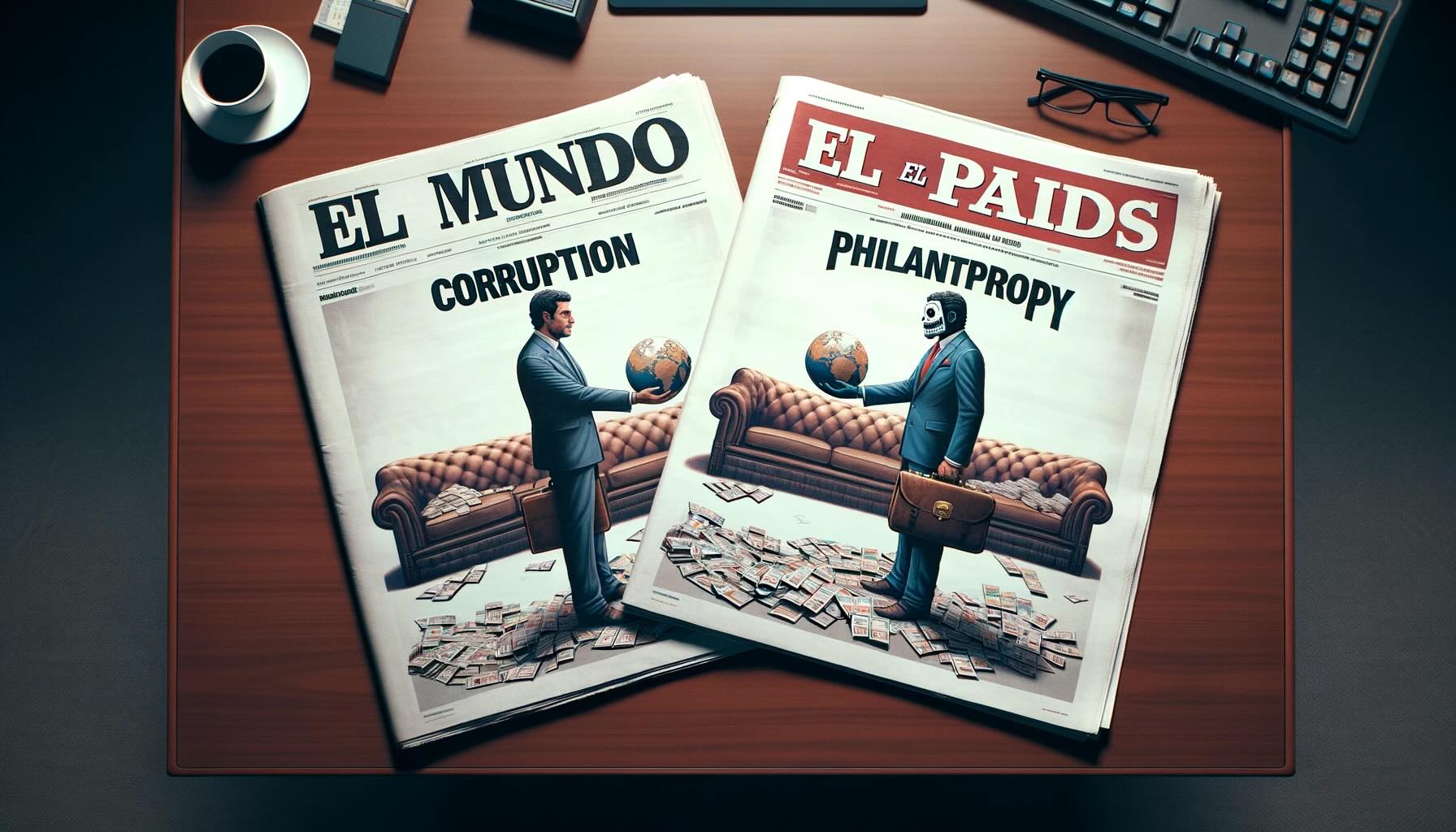Dear Diary,
Today, I found myself feeling nostalgic, remembering those days when I used to breakfast with El País and El Mundo. Back then, reading newspapers was like a delicate dance among ideological lines, where one could be critical yet still construct their own version of the truth with a pinch of healthy skepticism and plenty of coffee.
Oh, how times have changed! The digital revolution has painted the informational landscape in such strident colors that one might almost need sunglasses to look at it. Now, reading elDiario.es and OKDiario—or even El País and El Mundo themselves—or watching Fox News and CNN, I encounter two realities so diametrically opposed that they seem to come from parallel universes. One speaks of a paradise on Earth, while the other describes an impending apocalypse.
We are forced to “choose” the truth before we can even form our own opinion. This oversimplified polarization makes us subjects of the reality that best suits our taste. And in this buffet of facts and opinions, it seems that facts are just another color to pick from.
Reflecting on all this, I recall the words of an American politician who once said, “You are entitled to your own opinions, but not to your own facts.” Today, more than ever, those words resonate with a bitter truth in a world where opinions are disguised as facts to serve the interests of a few.
Indeed, dear diary, it seems that the exercise of discernment has become more an act of faith than of logic. Ideologies have turned into the new religions, or perhaps the new fundamentalisms, threatening to bring to the stake of inquisition those who do not adhere to the mandates of the beloved leader.
These days mark the 300th anniversary of the birth of Kant, the founder of critical thinking. What a tribute some sheep and sycophants could make by exercising their neuronal connections autonomously and critically.
There is just one hope: could the media once again become the notaries of reality in their scrutiny of public life, instead of merely being sectarian pamphlets that slaughter the truth?
With hopeful anticipation of a longed-for metamorphosis within the journalistic profession,
Victor
